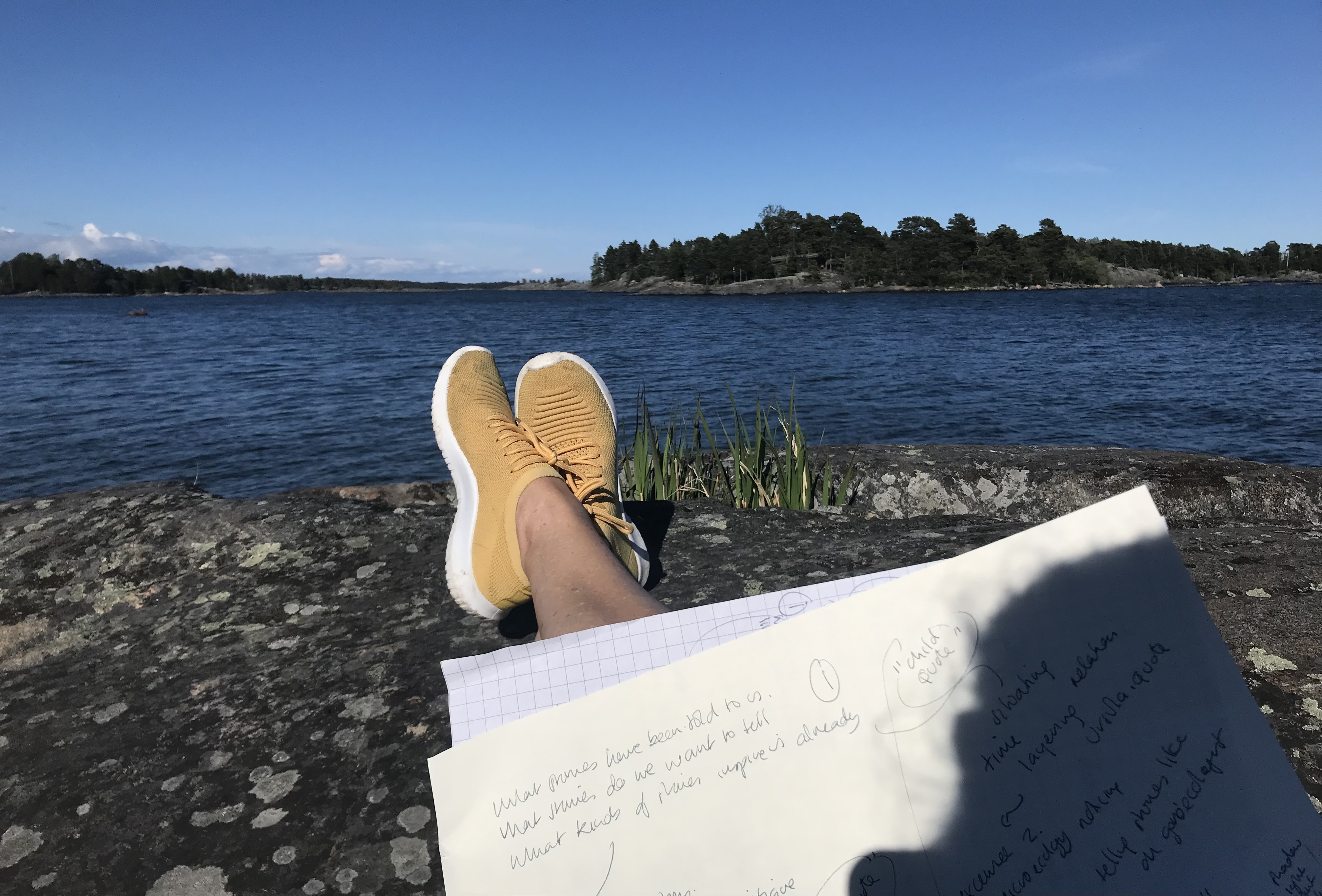AXM-E0301 - Art + Media Studio, Lecture, 1.3.2023-2.6.2023
This course space end date is set to 02.06.2023 Search Courses: AXM-E0301
Översikt
-
Description
The Story Ecologies studio group is for everyone and anyone in ViCCA and in DAM who is interested in engaging multisensorial and multispecies forms of storytelling in their practice and/or thesis work. An ecological approach to storytelling through art might concern itself with (among other things):
-Situating a narrative in multiple, more-than-human places and times
- Revealing existing human-more than human interdependencies and interconnectivities;
- Speculating about future political ecologies;
- Suggesting how these might manifest in multi-sensorial multi-species experiences.
*Recommended Prerequisites: AXM-E3002 - Story Ecologies in Theory, Practice & Everyday Life
Importantly, this particular studio group is intended as the applied, practical component of a complementary site-specific/ course, the content of which is situated each Thursday in April May in the lovely Villa Lil Kalvik (Vuosaari metro). The choice of Vuosaari is both as the area gives you access to the early springtime forests, beaches and waters of Kallahti and Uutela, but also importantly, the contested urban dynamics and incessant construction in this fastest growing area of Helsinki. https://www.taiteilijatalo.fi/villa-lill-kallvik
The complementary course is called AXM-E3002 - Story Ecologies in Theory, Practice & Everyday Life. It runs on Thursdays 27.4.2023-1.6.2023 and will bring you an additional 5 credits alongside the 9 credits already allocated to Art & Media Studio. It is strongly recommended that you take AXM-E3002 as most of the field experimentation and content will be given in the Thursday slot.
In combination, the two courses give exposure to the kinds of stories to be found and sensed in urban ecologies together with a selection of ecologies of story; methods which you might work in order to present these experiences in your own practice.
 Kallahti peninsula May last year
Kallahti peninsula May last yearImage of Digesting Waters final presentation by Genietta Varsi, Chiara Alissa Estivariz Lopez, Myriam Graz and Celine Diaz, Vuosaari, Villa Lil Kalvik, March 2022 Photo by Juan Couder
Priority order- Students who take both AXM-E3002 and this course together
- Degree & Exchange students in the VICCA
- Other students.
Course Content
The (AXM-E3002) Story Ecologies Thursdays at Vuosaari will focus upon enriching your own, group or individual story-ecological process and expanded senses of storytelling via guest inputs, experiential exercises, scores, field tours, readings films and podcasts (theory and fiction). Story Ecological themes explored in Vuosaari may include: Site specificity, Non linear and alternative narrative structures, Embodied Storytelling, Multiple temporalities, Non linguistic storytelling, Walking & Story, Everyday Animisms, Collaborative Methods and More than Human Actors. Critical explorations may include: Multi-Species Collaborations, Biomimicry, Voices and Reception (Audiences, Viewers, Listeners--be these human or non human).
The Wednesday and Friday AXM E031 (Art + Media Studio) components will focus mostly upon the application of Thursday's contents and methods in the development of ecologies of storytelling in your group, individual or thesis work. These sessions will be mostly held in Otaniemi, with certain dates reserved for extra field trips around Vuosaari.
Some of these Wednesday and Friday sessions may be conducted together with Pia Euro’s Material Situations and Spatial Arrangements as our studio rooms will be side by side. Pia and I would like to keep open the possibility for ViCCA Art & Media Studio students to benefit from both of our studios. However, if you sign up for Story Ecologies, you will be expected to commit to completing the Story Ecologies course outputs (below)
Course Outputs for combined courses AXM E031 (Art + Media Studio) 9 credits and AXM-E3002 (Story Ecologies) 5 credits
1. A working weekly journal/sketchbook (individual)
2. A story ecological work that resonates with the themes, methods and questions of the course (group or individual)
3. A critical reflection of this work that takes into consideration key methodological, material and multi species questions that have arisen during the course (individual max 2500 words)
-
This is a tentative lesson plan/schedule for the combined Art & Media Studio and AXM-E3002 - Story Ecologies in Theory, Practice & Everyday Life course.
The talks, walks and film dimensions for this group are open to all participants in the Art & Media Studio Course. I will send separate publicity for these talks closer to the time.
Lesson Plan/Schedule is on page 5-6 of this PDF
